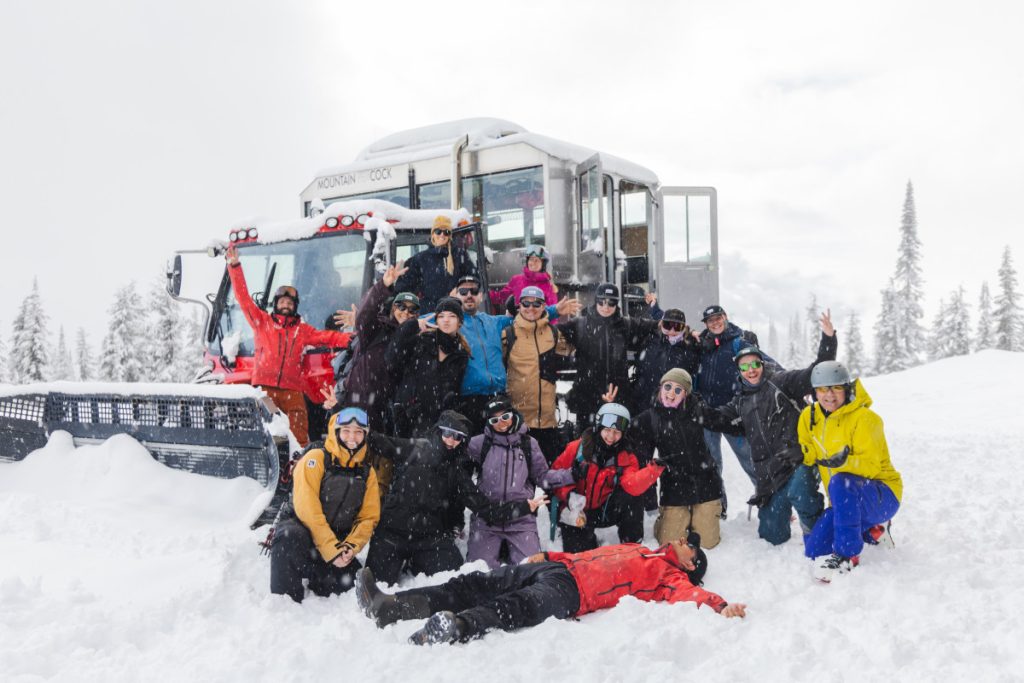By Terry Palechuk
Last April 9 – 13, TRU Adventure Studies collaborated with Mustang Powder Lodge in the facilitation of an Indigenous backcountry skills training course focusing on backcountry skiing and avalanche awareness. Although connecting with the land in a winter environment through skiing and snowboarding, the experience was much more than that. The mandate of the program was to elevate, empower and educate, and in the end, to foster a community of participants with an interest in recreation, or perhaps even see the outdoors as an alternative career choice.
The story really began a few years ago when Nick Holmes-Smith, owner/operator of Mustang Powder Lodge approached TRU and the Adventure Studies department with the idea of offering an Indigenous Adventure Studies Award as a way to help enable and support indigenous students with an interest in pursuing adventure as a possible career path. A formal gift agreement was signed off in September of 2022 (together with a memorandum of understanding of co-operation), and has been welcomed by indigenous students in the Adventure Studies program (informally, Mustang Powder had supported indigenous students for a couple years prior to the signing of the formal agreement). In addition to financial support, Nick also offers practicum experiences to those looking at the ski guiding industry as a possible career by providing real-world mentorship and experiences in the many facets of a mechanized backcountry ski lodge. This has become a bit of a pipeline for adventure studies students.
Fast forward to the winter of 2022/23 and conversations with Nick involve the idea of a backcountry course hosted at Mustang Powder Lodge. In April of 2023, eight participants were part of the initial program that helped inform the structure of the current course.
As one can imagine, running a backcountry snow cat ski lodge as well as being involved in the facilitation of the new indigenous backcountry skills training course was time consuming. Welcome Dylan Murray, an Indigenous adventure studies graduate (2023) who has taken on the role of program director for the Indigenous Backcountry Training Program being run under the Mustang Powder umbrella. This year, Dylan assembled a group of 12 participants (eight of whom were female), together with industry and community sponsorship to help offset the program costs and assist with equipment needs.
And so, we arrived on April 9 for the journey to the lodge to begin the experience. There were lots of excited participants with maybe a small dose of nervous excitement of what might transpire over the next few days. The group was joined by Tim Patterson, an Indigenous guide and facilitator who offered excellent conversations with the group around culture, connections with the land and the significance of place. This offered the foundation for reflections as we experienced the terrain, and what it offered us in terms of skiing/riding experiences. Tail guides included Dylan Murray, the Indigenous Adventure Studies graduate as mentioned earlier, as well as Gabby Boucher — another Indigenous Adventure Studies graduate (2022). Guides/instructors included Shannon Werner, Mustang Powder Lead Guide, Bruno Dupere (Adventure Studies graduate), and Adventure Studies faculty and guide, Terry Palechuk.
The group was also fortunate to have Alexi Mostert along as the official photographer of the program, and of course Lara Shea who was our snowcat driver. The many lodge staff rounded out the full catered experience in an amazing setting.
“I think the biggest take aways were the connection with other Indigenous skiers/boarders. Reading the terrain and connecting to the land was awesome. The balance between fun and learning was on point.” – Student feedback
Although this was a backcountry skills training course in which participants would receive their Avalanche Skills Training 1 (AST 1) certificate and apply decision making skills in mountainous terrain, it really became an opportunity to develop a community of skiing / riding enthusiasts experiencing the land in a winter environment (and acknowledging the land for that opportunity and to finish the program safely). As part of the program, the snow cat allowed us to see and experience far more terrain than if we were completely reliant on ski touring (walking) and as such added great value for everyone — particularly the fun part of skiing and snowboarding.
In the end, the program was a fusion of education, community and culture (not to mention some awesome skiing and snowboarding) resulting in a unique and powerful experience to where the good-byes at the end of the program were not easy, but tempered with plans for students to continue to stay in contact and connect for further adventures.
“Having the feeling of being out of my comfort zone but supported by the guides gained a lot of confidence not only in my backcountry skills but also in who I am as a person.” – Student feedback
A huge thanks to Dylan Murray — as an Adventure Studies instructor, I was amazed and gratified to see a graduate take on all the logistics and organization with such passion and — as we say —knock it out of the park! It was also fantastic spending time with our two other graduates, Gabby and Bruno, and smile with satisfaction and future optimism at where they are in their careers. And of course, those early conversations and brainstorming sessions with Nick Holmes-Smith and the visions of what could be — a huge thanks.
TRU and the Adventure Studies department is privileged to be a partner in this endeavor.
“Forever stoked and eternally grateful I have this experience to look back on and take the skills I’ve learned into the field.” – Student feedback
“Mustang was incredible. Having personal space, large group areas and full resources were appreciated.” – Student feedback
Photos by Alexi Mostert.


